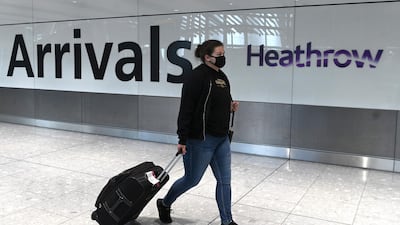A “staggering” 174 million travel and tourism jobs could be lost worldwide this year if current global travel restrictions to curb the spread of Covid-19 continue, the World Travel & Tourism Council said on Friday.
Prolonged travel barriers could also eliminate $4.7 trillion of the sector’s contribution to gross domestic product, equivalent to a 53-per-cent loss when compared to 2019.
However, if current barriers to travel are replaced with effective testing programmes, 31 million jobs could be saved by the end of 2020 – more than 500,000 jobs a day between now and December 31, the travel body said.
“Our latest data reveals the gravity of the long-term negative impact facing the global travel and tourism sector, if we don’t work together to resume international travel immediately,” said Gloria Guevara, WTTC president and chief executive.
“The sector’s recovery will be delayed even further, with more jobs lost, unless quarantines are replaced with rapid, cost-effective testing at airports on departure, and air corridors. The longer we wait, the more the ailing travel and tourism sector faces total collapse.”
The 174 million figure is a downwards revision from June data which expected 197 million job losses by the end of the year. WTTC said the positive gains have been driven by the return of domestic air travel in China, which has seen a positive recovery thanks to comprehensive testing and contract tracing programmes.
However, Ms Guevara said that as travel restrictions remained in place over the summer months,more jobs were placed under threat once again, which is why “international coordinated action” is now needed.
Airlines must cut more jobs to reduce costs as travel demand remains muted in the wake of Covid-19, the International Air Transport Association, an industry body representing 280 airlines, said on Tuesday.
The same day, the airports body ACI Europe said an estimated 193 European hubs face going bust as a result of the pandemic. The airports, which provide 277,000 jobs and generate €12.4bn ($14.5bn) in collective annual revenue, are considered “at-risk airports,” with the threat of mass closures posing a significant threat to Europe’s air transport system.
Meanwhile, Heathrow lost its position as Europe’s busiest airport this week for the first time to Paris Charles de Gaulle, as the hub’s chief executive John Holland-Kaye blamed the UK government for not bringing in an airport testing regime to help kick-start travel, allowing other rivals to reopen faster.
Prior to the pandemic, travel and tourism was responsible for one in 10 jobs or 330 million in total around the world, making a 10.3-per-cent contribution to global GDP and generating one in four of all new jobs, according to WTTC’s 2020 Economic Impact Report.
Earlier this month, the WTTC proposed a plan to restart international travel and tourism and restore 100 million jobs globally. The plan was presented during the meeting of G20 tourism ministers, 45 company chief executives and members of WTTC.
Eliminating quarantines and other travel barriers through an international testing regime, combined with rigorous health and safety checks, could help the industry adapt to Covid-19 while also minimising the spread of coronavirus, it said.


